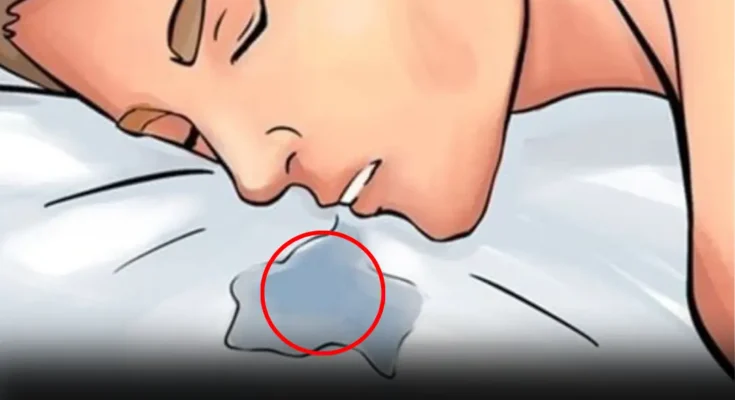The Problem of Drooling While Sleeping Should Not Be Ignored
Drooling while sleeping is a common phenomenon, but if it occurs
frequently in adults, it may be a sign of certain serious health
conditions.
Where Does Saliva Come From?
The process of saliva secretion is controlled by the autonomic nervous
system, functioning involuntarily like the heartbeat. The salivary
glands in the mouth are divided into major and minor salivary glands.
There are three pairs of major salivary glands:
Sublingual glands
Parotid glands
Submandibular glands
These salivary glands work continuously, keeping the oral environment
moist, disinfecting, cleaning the mouth, and aiding digestion. In healthy
adults, the amount of saliva secreted daily ranges from 1 to 1.5 liters,
averaging about 30 ml per hour. Saliva secretion increases when eating
or when the brain’s nerves are stimulated.
Mouth breathing, stress, fatigue, or incorrect sleeping positions can all
lead to drooling while sleeping.
When Should You Be Concerned About Drooling?
In children, this phenomenon is common as their oral muscles are not
yet fully developed. However, if an adult suddenly experiences frequent
drooling while sleeping, they should be aware of the following health
conditions:
1. Oral Diseases
Pharyngitis, gingivitis, and maxillofacial inflammation can stimulate
the salivary glands to produce more saliva, leading to drooling.
Additionally, misaligned teeth, loose teeth, or discomfort from wearing
dentures can also cause this condition. If the problem stems from oral
health issues, timely adjustments can help improve the situation.
2. Facial Paralysis
Facial paralysis is a condition where the muscles on one side of the face
become paralyzed, making it difficult to control saliva. If drooling is
accompanied by a crooked mouth, immediate medical attention is
needed.
3. Gastroesophageal Reflux Disease (GERD)
Abnormal stomach acid levels can trigger an increased saliva secretion
reflex. People with GERD often experience drooling along with
symptoms like acid reflux, heartburn, and chest pain.
4. Parkinson’s Disease
In Parkinson’s patients, swallowing function is impaired, causing saliva
to accumulate rather than being swallowed in time. Additionally, nerve
damage can stimulate excessive saliva production, leading to
continuous drooling.
5. Cerebral Thrombosis (Stroke)
Blockages in cerebral blood vessels can impair the function of throat
muscles, preventing the patient from controlling saliva while sleeping.
If accompanied by symptoms such as a crooked mouth, saliva flowing
in one direction, and difficulty closing the eyes, immediate medical
attention is required.
6. Arteriosclerosis
Arteriosclerosis reduces blood flow to the brain, leading to oxygen
deficiency and affecting facial muscle function. Middle-aged and elderly
individuals with high blood pressure, high cholesterol, or diabetes
should be particularly cautious.
How to Improve Drooling While Sleeping
1. Adjust Your Sleeping Position
Sleeping on your back can help reduce drooling, balance the
development of different body organs, and support better breathing.
Avoid sleeping on your stomach or staying in one position for too long.
A U-shaped neck pillow can help support the neck and maintain a
proper sleeping posture.
2. Maintain Oral Hygiene
Practice daily oral care by rinsing your mouth after meals, brushing
your teeth in the morning and evening, using fluoride toothpaste, and
flossing at least once a day to clean between teeth. If you have oral
health issues, address them promptly to prevent long-term
consequences.
3. Adjust Medications
If drooling is related to medications, consult your doctor to explore
alternative options. However, do not change or stop taking prescribed
medications without medical advice.
Drooling while sleeping may be normal in some cases, but if it persists,
pay attention to warning signs of underlying health conditions and
seek medical evaluation when necessary.



